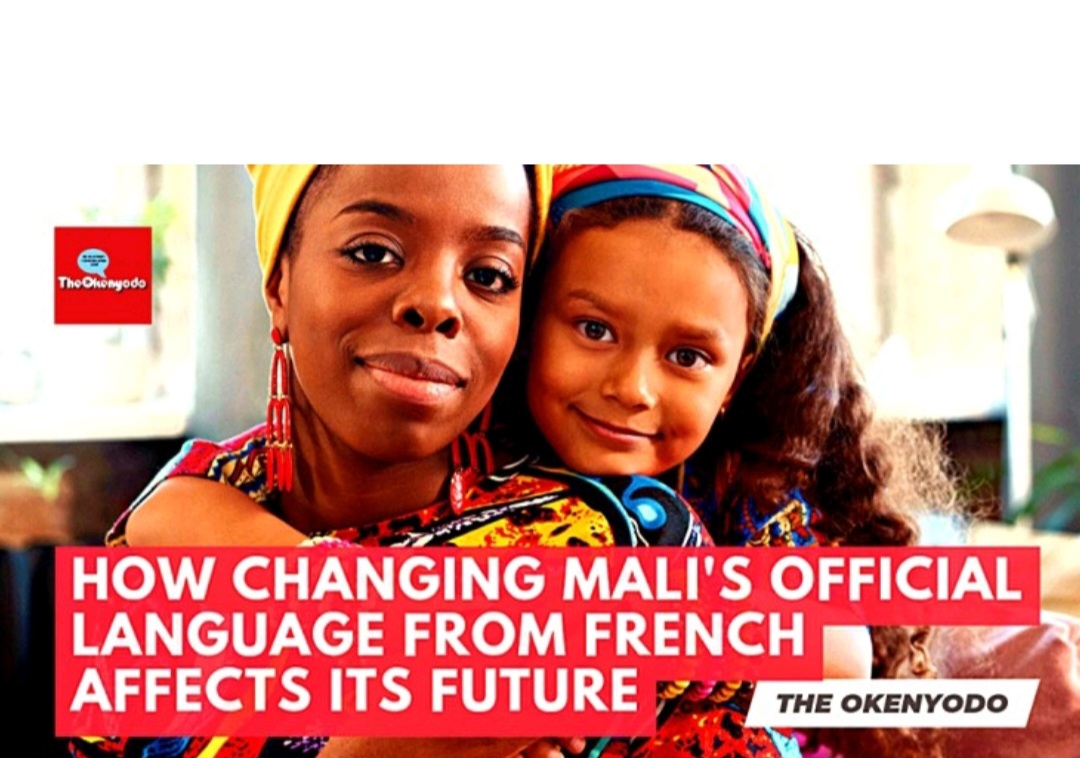By Odoh Diego Okenyodo
Those of you who follow Akweya TV know that we love promoting African languages and culture. Thus, you would guess I should be enthusiastic about Mali or any other African country ditching a colonial relic such as what the people of Mali did, unanimously voting recently in a referendum and kicking French out of its official language status and installing 13 of the people’s own languages to replace French. Comment ca va? What does this important step mean for the country, especially given that 96.81% of the populace voted for this?
Col. Assimi Goita, the military leader of Mali, is trying to listen to people more than democratically elected leaders do, and this must be creating a legitimacy challenge for leaders across West Africa. For practitioners of development communication, what the Colonel has done with this is a master stroke.
Now, Bambara, Bobo, Bozo, Dogon, Fula, Hassaniya, Kassonke, Maninke, Minyanka, Senufo, Songhay languages, Soninke, and Tamasheq are official languages in Mali, and Mali is no longer going to be described as “Francophone” in the strict sense of it. French still has “Working Language” as a status though, and that is magnanimous and pragmatic thinking on the part of the people of Mali. Retaining French as Working Language recognises that since independence in 1960 and even before then all Malians have spoken French, having been raised in it. Thus, severing ties with the language should take place in phases, even if severing ties with the nation France hasn’t been so diplomatic.
Let’s take step back and see how this all started. In August 2020, essentially 3 years ago, some men took over the reins of power by the barrel of the gun. Soon, they kicked the French out amid longstanding anger over France’s brazen exploitation of former French colonies. Recently, the United States froze assets of three Malian military officials for helping the Wagner Group get a foothold in the region since 2021, implying that Russia has a hand in what is happening in there. So you can see why Colonel Goita is using this linguistic diplomacy like iodine to treat goitre, which is a disease caused by the body working too hard produce a hormone it lacks.
Language is a powerful tool that shapes culture, identity, and the way a society communicates with the world. In recent years, there has been a growing debate in Mali about changing its official language from French to a more locally relevant option. And, like ingesting iodine for making the thyroid hormone, this linguistic shift could have significant implications for Mali’s future.
Mali boasts a rich cultural tapestry with diverse languages spoken by various ethnic groups. Embracing local languages as official languages is a sure step towards preserving and promoting the country’s linguistic diversity, allowing each community to preserve its cultural heritage and pass it on to future generations. Of course, about 70 to 80 languages are known to exist in the country and, outside the 13 that are now official languages, every language now has National Language status, which is brilliant.
Children tend to grasp concepts more effectively when taught in their mother tongue.
Language plays a crucial role in fostering national unity. Adopting widely spoken local languages as official media of communication could create a stronger sense of belonging and unity among the people of Mali, transcending ethnic and regional divides.
In education, using a local language can lead to improved learning outcomes, especially at the primary level. Children tend to grasp concepts more effectively when taught in their mother tongue. By making this shift, Mali might witness a positive impact on literacy rates and educational achievements. The literacy rate in Mali was 31%, according to the World Bank when the coup took place in 2020.
Using a local language in schools can lead to improved learning outcomes.
Changing the official language can promote inclusivity and democratic participation, particularly given the participatory manner Mali went about it. A local language may encourage more citizens to engage actively in public affairs, as they will feel more comfortable expressing themselves in their native tongue.
Changing the official language can promote inclusivity and democratic participation, particularly given the way Mali went about it.
In terms of economic development and trade, French is currently the language of business and government in Mali. While the change may present some short-term challenges, this adoption of local languages will encourage the growth of small-scale businesses and boost economic activities at the grassroots level. The country is reported to consist of 8 poor citizens out of every 10. Of course, Mali needs to collect its own data to assess this more accurately in 2023.
However, ensuring a smooth transition and bilingual proficiency among professionals would be essential for maintaining international trade relations. Again, this might not be a problem as some of the languages are spoken across borders like Fula or Fulani/Fulbe spoken across Mali all the way through Ghana to Niger and Nigeria; and Bambara is similar to the Dyula language of Cote d’Ivoire and Burkina Faso. This implies that Mali’s current linguistic experiment is more likely to foster regional integration, which the Economic Community of West African States (ECOWAS) has been trying to achieve since 1975.
Thus, as the world becomes increasingly interconnected, maintaining multilingual proficiency is crucial for effective global communication. Retaining French as a working language alongside the new official ones would help Mali maintain its international relations and access valuable resources from the Francophone community. Hopefully, that is, if France does not resort to the Thomas Sankara treatment.
Of course, there would be challenges, but I don’t believe these would be so enormous that they would defy solutions. Implementing such a significant linguistic change requires careful planning and consideration.
Challenges are likely to arise in terms of language standardisation, curriculum development, and resource allocation. To overcome these hurdles, Mali would need comprehensive language policies, investments in teacher training, and support for language-based research and development. However, these are huge job creation opportunities. Every company, diplomatic mission, NGO, and even national institution would now require the services of experts or persons proficient in these 13 languages and more. What huge cultural, social, economic, technological, and mental shifts are about to take place in Mali! You now need to manufacture computer keyboards in all of these languages. Wow!
Challenges are likely to arise in terms of language standardisation, curriculum development, and resource allocation. However, these are huge job creation opportunities. Every company, diplomatic mission, NGO, and even national institutions would now require the services of experts or persons proficient in these 13 languages and more.
In conclusion, shifting Mali’s official language from French to local languages represents a complex yet transformative step. Embracing the linguistic diversity within the nation will strengthen its cultural identity, promote unity, and foster socio-economic development.
However, careful planning, investments, and gradual implementation will be vital to ensure a successful transition. The journey towards a new linguistic landscape may be challenging, but the rewards could pave the way for a brighter and more inclusive future for Mali and its people.
Okenyodo is the founder of Isu Media Ltd, CEO of Akweya TV Limited, development broadcasting. Experienced Development Communication Expert. He helps NGOs, businesses and individuals achieve what they desire.
July 30, 2023.
Ends









